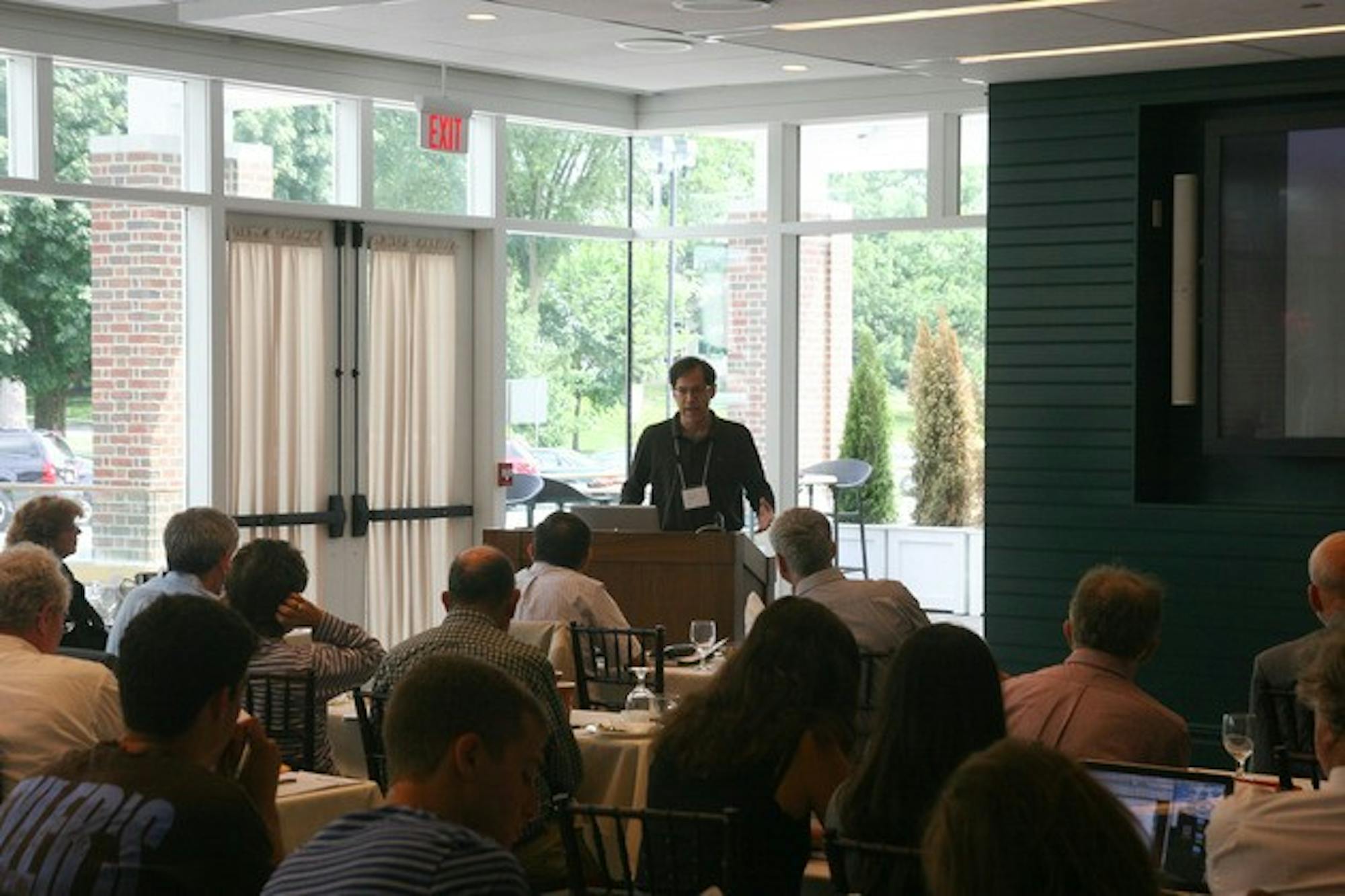The 13 speakers, which included television producers and Beilis' relatives, discussed the trial's contemporary politics and its relationship to the history of blood libel.
Co-coordinator and Jewish studies professor Susannah Heschel, who is teaching a course on modern Jewish history, said she wanted to give her students an opportunity to extend their learning outside the classroom.
Heschel said the College's reputation as an academic center enhances the conference's scholarly mood and level of discussion.
"When someone is invited to Dartmouth to give a paper, then they take the invitation seriously and write a serious academic paper of scholarly caliber," she said.
For the centennial anniversary, Heschel and co-coordinator and government professor James Murphy brought together various scholars who examine the trial through Russian politics, the Dreyfus affair and communism.
In 1911, Beilis was arrested in Kiev, then part of the Russian empire, by the secret police and accused of ritually murdering a Christian boy to use his blood in baking matzah for Passover. Two years later, Beilis was acquitted by an all-Christian jury.
Murphy said that, ironically, blood libel was first used by ancient Greek and Roman pagans to persecute Christians.
"The blood libel is a fascinating rhetorical trope because it was started in pagan Roman accusations against Christians, who were accused of using human blood in rituals," he said.
Christians then similarly accused Jews, and Muslims are currently making similar accusations against Jews, Murphy said. He said he was surprised that blood libel has survived so many different historical and cultural contexts.
"Why is this thing so unkillable?' and Why has it spread so widely?' [are] questions that I think [were] explored well in the panels," Murphy said.
Blood libel developed in Catholic countries despite papal condemnation. Murphy said the concept originated in western Europe and spread to orthodox Christianity and Islam.
Another aspect of the trial revolves around the fictional representation of Beilis in Bernard Malamud's novel "The Fixer." Murphy said Malamud has been accused of plagiarizing Beilis' memoir and dishonoring his memory.
"The question is, what responsibilities do writers have to the history they are drawing on? Are they permitted to denigrate historical sources they are drawing from even though they are writing fiction?" Murphy asked. "Does it give them the right to rewrite history?"
Murphy said the lack of evidence and the outlandish discussion surrounding blood libel left him questioning whether people deploying this tactic truly believe it.
Heschel said anti-Semitism was not just a tool in Stalin's hands, but was used by communists to achieve their greatest legacy drawing a connection between Zionism and Nazism.
"Marxism is itself a kind of conspiracy theory," she said. "There are underlying issues of vulnerability or openness to accept conspiracy, and I want to investigate why this happens."
Attendees said they enjoyed the extensive look into the history of anti-Semitism and complimented the presenters' use of narratives.
"I think the anti-Semitism we know about is just big major themes but the details they presented were in good story form and the narratives really made anti-Semitism come alive," said Sheila Kempler, an Upper Valley summer resident.
Student attendees, many of whom are taking Heschel's Jewish studies course, said that the conference provided an interesting look into the impact of anti-Semitism on Jewish history and culture.
"It's great that we're taking a look back at important Jewish events and opening people's eyes to the harsh culture that has surrounded Jewish oppression," Adam Charnin-Aker '16 said.
The conference was co-sponsored by the Jewish Studies Program, the Leslie Center for the Humanities, the Dean of the Faculty and the dean of interdisciplinary and international programs.




